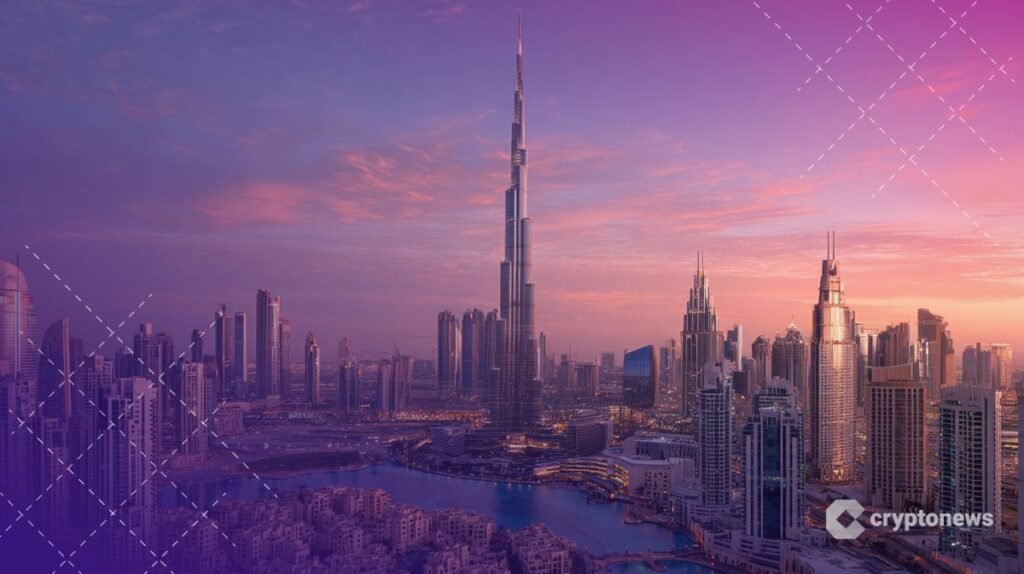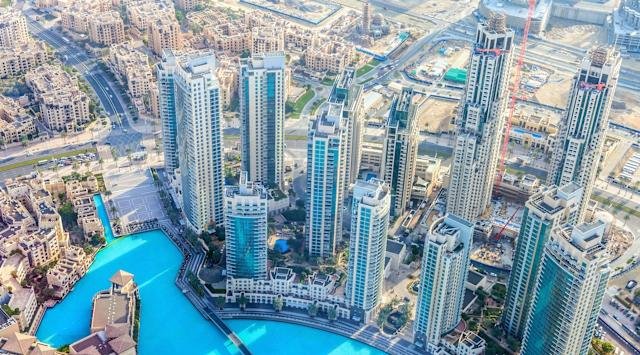In a groundbreaking development that signals a new era for the world of digital finance, Dubai has officially approved its first tokenized money market fund under the Real World Asset (RWA) category. This powerful move not only strengthens Dubai’s position as a leading global financial hub but also marks a pivotal moment in the adoption of blockchain technology in traditional finance.
The approval highlights the city’s forward-thinking leadership and bold commitment to embracing next-generation financial solutions. As digital assets continue to reshape the financial landscape worldwide, Dubai is making sure it’s not just keeping up — it’s setting the pace.
A New Chapter in Financial Innovation

The approval of a tokenized money market fund under RWA is no small feat. Traditionally, money market funds are conservative, short-term investment vehicles designed to offer investors stability, liquidity, and a modest yield. They’re the financial world’s equivalent of a reliable friend — dependable, steady, and low-risk.
By tokenizing these assets and bringing them onto a blockchain, Dubai has essentially opened a new chapter in financial innovation. Tokenization refers to the process of converting physical or real-world assets into digital tokens on a blockchain, making them more accessible, transparent, and tradable. It’s a concept that’s been talked about in fintech circles for years, but real-world adoption at scale has often lagged behind.

Dubai’s regulatory green light changes that dynamic, making the city a trailblazer in integrating digital asset technology with established financial markets.
Why This Matters
For those outside the financial services industry, it might be easy to underestimate the significance of this move. But in truth, it signals a profound shift in how the world may soon invest, save, and trade.
Firstly, tokenizing money market funds allows for fractional ownership, meaning investors can buy tiny portions of an asset, rather than having to commit large sums. This democratizes access to investment products that were traditionally reserved for high-net-worth individuals and institutions.
Secondly, by leveraging blockchain technology, transactions become faster, more secure, and transparent. This reduces administrative overheads, lowers costs, and enhances trust among participants in the financial ecosystem.
And perhaps most importantly, this move paves the way for a future where traditional finance (TradFi) and decentralized finance (DeFi) don’t exist in silos but merge to create a more inclusive, efficient, and innovative financial system.

Dubai Leading the Pack
It’s hardly surprising that Dubai would be among the first global financial centers to take this leap. The city has built a reputation for being bold, ambitious, and unafraid to challenge the status quo.
Over the past decade, Dubai has made significant investments in positioning itself as a fintech and blockchain hub. From launching the Dubai Blockchain Strategy to establishing the Virtual Assets Regulatory Authority (VARA), the emirate has consistently demonstrated a proactive approach towards digital asset innovation.
This latest approval is simply the next logical step in that journey.
What Is a Tokenized Money Market Fund?
To put it simply, a tokenized money market fund is a digital version of a traditional money market fund, issued and managed on a blockchain. Investors receive digital tokens that represent a share of the fund’s holdings, which typically include short-term, low-risk instruments like treasury bills, certificates of deposit, and commercial paper.
What makes this particularly exciting is the increased liquidity and accessibility it offers. Instead of navigating complex banking processes or brokerage accounts, investors can buy, sell, or trade their fund tokens on blockchain platforms, often with lower fees and 24/7 market access.
It also introduces programmable finance features — where transactions can be automated using smart contracts, removing intermediaries and streamlining processes.
Why Tokenization Is the Future
The concept of tokenizing real-world assets isn’t new, but momentum has been building rapidly. Financial experts predict that tokenization will eventually touch almost every asset class — from real estate and commodities to fine art and private equity.
Tokenized assets offer three powerful advantages:
- Increased Accessibility: Investors from around the world can participate in markets previously out of reach due to geographic, regulatory, or financial barriers.
- Enhanced Liquidity: Traditionally illiquid assets can be traded more easily, broadening market participation and reducing entry and exit frictions.
- Greater Transparency: Blockchain’s immutable ledger ensures every transaction is recorded, viewable, and verifiable, boosting trust and confidence.
Dubai’s latest milestone is a powerful case study of how these benefits can translate from theory into practice.
A Positive Signal for Global Markets
Beyond the regional implications, this approval sends a strong signal to global markets about the viability and legitimacy of tokenized financial products. It could inspire regulators and financial institutions in other countries to explore similar initiatives, potentially ushering in a new era of digital asset adoption worldwide.
Investors, both retail and institutional, are increasingly seeking diversified, flexible, and transparent investment options. Tokenized money market funds fit perfectly into this emerging landscape, offering a blend of traditional safety with modern convenience.
As other financial centers observe Dubai’s success, it wouldn’t be surprising to see similar frameworks being considered in cities like Singapore, Zurich, and London.
The Role of Regulation
Of course, none of this would be possible without progressive regulatory frameworks. One of the main reasons Dubai continues to thrive as a digital finance hub is its proactive stance towards regulation.
By establishing clear, transparent, and business-friendly guidelines for digital assets and tokenized products, the city has attracted a growing number of fintech firms, blockchain startups, and asset managers. These firms feel confident launching innovative products in a market where the rules are clear, the environment is supportive, and regulators are willing to engage in dialogue.
This regulatory clarity also protects investors, ensuring that while innovation flourishes, risks are managed, and market integrity is maintained.
Industry Reactions
Unsurprisingly, the industry has greeted this announcement with enthusiasm. Financial technology firms, asset managers, and blockchain enthusiasts see it as a game-changer that validates years of effort in building digital asset infrastructure.
Several market players have expressed interest in launching similar tokenized products in Dubai, ranging from real estate investment trusts (REITs) to private equity funds. The approval of a money market fund is expected to serve as a template for other asset classes, accelerating the pace of tokenization initiatives in the region.
Moreover, tech innovators specializing in decentralized finance are excited about potential integrations between traditional financial products and blockchain-based DeFi platforms, envisioning a future of seamless interoperability.
What It Means for Everyday Investors
For everyday investors, this development could open up new opportunities to participate in high-quality investment products without the traditional barriers of high minimum investments, complex paperwork, or limited market access.
Imagine being able to invest a small sum in a diversified, professionally managed fund with the click of a button, anytime and anywhere in the world. That’s the promise of tokenized assets — and Dubai is bringing that vision closer to reality.
Additionally, for the large population of expatriates living in the UAE, it means greater financial flexibility and access to global-standard investment opportunities without having to navigate offshore banking restrictions.

Looking Ahead
While the approval of a single tokenized money market fund might seem like a niche event to the uninitiated, industry insiders know it represents a vital first step towards a much larger transformation.
As more asset managers and financial institutions in Dubai and beyond enter the tokenization space, we can expect a surge in new product offerings, ranging from tokenized real estate portfolios to digital infrastructure bonds.
This will not only diversify the investment landscape but also attract a new generation of tech-savvy investors eager to engage with modern, accessible, and transparent financial solutions.
Final Thoughts
Dubai’s approval of the first tokenized money market fund is more than just a regulatory milestone — it’s a bold statement about the city’s ambitions to shape the future of finance. By embracing blockchain technology and integrating it with established financial markets, Dubai is laying the groundwork for a more inclusive, efficient, and dynamic financial system.
For financial professionals, fintech innovators, and everyday investors alike, this is an exciting moment. It’s a clear signal that the future of finance is no longer coming — it’s already here. And Dubai, as always, intends to lead from the front.
As other markets watch closely, one thing is certain: this is just the beginning. The digital asset revolution is accelerating, and thanks to bold moves like this, it’s never been a more thrilling time to be part of the financial world.
Follow us on Instagram: UAE STORIES
SCENT’s ‘Aatidonji Dina 2025’ Festival Preparatory Meet Held in Dubai













